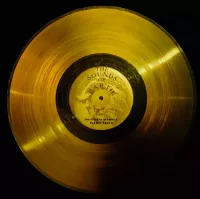Wesleyan University, established in 1831 in Middletown, Connecticut, is a private liberal arts university. Originally founded as a men's college with Methodist affiliations, it has since become a secular institution. The university is known for its open curriculum and strong programs in the arts and sciences.
1901: Publication of The Wesleyan Song Book
In 1901, "The Wesleyan Song Book" by Karl P. Harrington and Carl F. Price was published.
1901: Glee Club Performance at the White House and Publication of Song Book
In 1901, the Wesleyan glee club was received at the White House by President McKinley, and the first edition of "The Wesleyan Song Book" was published by university alumni.
1909: Judd Hall built
In 1909, Judd Hall was constructed and named after alumnus Orange Judd. It became one of the earliest academic buildings on any American college or university campus dedicated exclusively to undergraduate science instruction.
1909: North College Replaced After Fire
In 1909, North College, an original core building of the campus, was replaced after a fire with the current North College.
1909: Wesleyan stops admitting women as undergraduates
In 1909, Wesleyan stopped admitting women as undergraduates, fearing the school was losing its masculine image and that women would not be able to contribute financially after graduation as men could. This decision marked a shift back to being an all-male college until 1970.
1910: Student body size
In 1910, the Wesleyan student body numbered about 300 students.
1910: Mention of the year 1910
The book, Wesleyan University, 1831–1910: Collegiate Enterprise in New England, by David B. Potts, mentions the year 1910.
1912: Wesleyan operates as all-male college
From 1912, Wesleyan operated again as an all-male college until 1970.
1923: Publication of The Goose-Step: A Study of American Education
In 1923, Upton Sinclair published "The Goose-Step: A Study of American Education."
1925: Olin Library built
Olin Library was built between 1925 and 1927 and was dedicated in 1928.
1927: Olin Library built
Olin Library was built between 1925 and 1927 and was dedicated in 1928.
1928: Glee Club Performance at the White House
In 1928, the Wesleyan glee club was received at the White House by President Coolidge.
1928: Olin Library dedication
Olin Library was designed by the firm of McKim, Mead & White, built 1925–1927, and dedicated in 1928.
1932: Publication of Wesleyan's First Century With an Account of the Centennial Celebration
In 1932, Carl F. Price published "Wesleyan's First Century With an Account of the Centennial Celebration."
1957: Tradition of stealing the cannon begins
In 1957, the tradition of stealing the Douglas Cannon began in earnest.
1963: Publication of Night and Silence Who is Here?
In 1963, Pamela Hansford Johnson's comedic novel, "Night and Silence Who is Here?", was published, which is thought to be patterned after Wesleyan's Institute for Advanced Studies.
1968: Inception of the Watson Fellows Program
Since the inception of the Watson Fellows program in 1968, Wesleyan University has had at least 87 Watson Fellows.
1970: Wesleyan operates as all-male college
From 1912 to 1970, Wesleyan operated again as an all-male college.
1970: Mention of the year 1970
The book, A History of the Eclectic Society of Phi Nu Theta, 1837–1970, by William B.B. Moody, mentions the year 1970.
1991: Wesleyan wins ECAC soccer championship
In 1991, Amos Magee helped lead Wesleyan University to an ECAC soccer championship and school-best record of 15–1–1.
1992: Amos Magee named All-American
In 1992, Amos Magee was named a National Soccer Coaches Association of America (NSCAA) Division III All-American.
1994: Release of PCU
In 1994, the cult comedy film "PCU" was released, which was based on and filmed in part at Wesleyan University, the alma mater of the screenwriters. It portrays an exaggerated view of contemporary college life, focusing on a fictionalized version of the Eclectic Society.
1995: Publication of Thinker, Sailer, Brother, Spy: A Novel
In 1995, John Maher's "Thinker, Sailer, Brother, Spy: A Novel" featured a fictional look at the life of a professor at Wesleyan University.
1999: Publication of Wesleyan University, 1831–1910: Collegiate Enterprise in New England
In 1999, David B. Potts published "Wesleyan University, 1831–1910: Collegiate Enterprise in New England."
2002: Publication of The Gatekeepers: Inside The Admissions Process of a Premier College
In 2002, Jacques Steinberg published "The Gatekeepers: Inside The Admissions Process of a Premier College."
2006: Publication of One Hundred Semesters: My Adventures as Student, Professor, and University President, and What I Learned along the Way
In 2006, William M. Chace published "One Hundred Semesters: My Adventures as Student, Professor, and University President, and What I Learned along the Way."

2007: Fulbright Program Scholarships
From 2007 through 2011, 42 Wesleyan students and alumni received scholarships under the Fulbright program.
2007: Gary Yohe Wins Nobel Peace Prize
In 2007, Gary Yohe, a current professor of economics at Wesleyan, won a Nobel Peace Prize.
2007: Publication of A History of the Eclectic Society of Phi Nu Theta, 1837–1970
In 2007, William B.B. Moody published "A History of the Eclectic Society of Phi Nu Theta, 1837–1970."
2008: Wesleyan's Film Program Recognized by Vanity Fair and Variety
In 2008, Vanity Fair noted Wesleyan's disproportionate number of Hollywood alumni, while Variety recognized Jeanine Basinger's contribution to the film industry through Wesleyan's Film Studies program.
2008: Olla Podrida ceases publication
Until 2008, the student body published the Olla Podrida which was originally a quarterly newspaper in the late 1850s, but was the college yearbook since the Civil War.
2009: Creation of the Bailey College of the Environment
In 2009, the Bailey College of the Environment was created. It integrates curricular components, a Think Tank of Wesleyan faculty and scholars, and the Collaborative Research Initiative to encourage environmental research.
January 2010: Premiere of The Eclectic Society Play
On January 27, 2010, "The Eclectic Society", a play based upon the Eclectic Society at Wesleyan University during the early 1960s, premiered at the Walnut Street Theatre.
2010: Publication of Music at Wesleyan: From Glee Club to Gamelan
In 2010, Mark Slobin published "Music at Wesleyan: From Glee Club to Gamelan."
2010: Renaming of the Wesleyan Concert Choir
In 2010, the Wesleyan Concert Choir was renamed The Wesleyan Ensemble Singers.
2010: Doonesbury Comic Strip Featuring Wesleyan University
In the autumn of 2010, the Pulitzer Prize-winning comic strip "Doonesbury" by Garry Trudeau featured Wesleyan University in a series of daily strips.
February 2011: Wesleyan recognized for student involvement
In February 2011, U.S. News & World Report described Wesleyan as one of "20 Colleges Where It's Easiest to Get Involved" with a "Students per Club" ratio of "11.66".
2011: Fulbright Program Scholarships
From 2007 through 2011, 42 Wesleyan students and alumni received scholarships under the Fulbright program.
2012: Wesleyan partners to offer free online courses
Beginning in 2012, Wesleyan became the first small liberal arts college to partner with a private consortium to design and offer free public access online courses in subjects like Math, Computer Science, Law, Psychology, and Literature.
2012: Publication of Dream School
In 2012, Blake Nelson's novel "Dream School" was published, in which the protagonist attends Wellington College, an eastern liberal arts college modeled on Wesleyan.
February 2013: Wesleyan announces the creation of a new College of Film and the Moving Image
In February 2013, Wesleyan announced the creation of a new College of Film and the Moving Image, incorporating the Film Studies Department, the Center for Film Studies, the Cinema Archives and the Wesleyan Film Series.
September 2014: Order for Fraternities to Become Co-Educational
In September 2014, Wesleyan University mandated that all fraternities with on-campus housing become co-educational within three years.
2014: Wesleyan becomes test optional
Since 2014, Wesleyan has been test optional.
2015: Publication of Rolling Stone Article on Wesleyan's Drug Culture
In 2015, Rolling Stone published "Inside the Wesleyan Molly Bust", a long-form feature on Wesleyan's drug culture, detailing overdoses on tainted ecstasy and the subsequent expulsion of five students.
2015: Satoshi Omura Awarded Nobel Prize for Medicine
In 2015, Satoshi Omura, Max Tishler Professor of Chemistry at Wesleyan, was awarded the Nobel Prize for Medicine.
2015: Closure of DKE Fraternity House
In 2015, Wesleyan University ordered the closure of the Delta Kappa Epsilon (DKE) fraternity house on High Street.
2016: Wesleyan listed among '10 Worst Colleges for Free Speech'
Wesleyan was listed on the Foundation for Individual Rights in Education's 2016 "10 Worst Colleges for Free Speech".
2017: DKE Victory in Court Trial
In 2017, Delta Kappa Epsilon (DKE) won its claim against Wesleyan University in a court trial, with the jury awarding $386,000 in damages to the Kent Literary Club, DKE's Wesleyan alumni chapter.
2018: Men's Lacrosse team wins NCAA championship
Led by coach John Raba, the Wesleyan's Men's Lacrosse team won the Division III NCAA championship title in 2018. It was the first national championship in school history.
2019: Kiplinger ranks Wesleyan 16th for best value
In 2019, Kiplinger ranked Wesleyan 16th of the 149 best value liberal arts colleges in the United States.
2019: Davison Art Collection Relocated
Until 2019, the Davison Art Collection was housed in Alsop House, a U.S. National Historic Landmark, before being relocated to Olin Memorial Library.
2022: Washington Monthly ranks Wesleyan third
In 2022, Washington Monthly ranked Wesleyan third out of 203 liberal arts colleges in the U.S., based on its contribution to the public good, as measured by social mobility, research, and promoting public service.
July 2023: Wesleyan ends legacy admissions
In July 2023, Wesleyan announced that it would no longer give preference in admission to applicants with family or donor ties to the school, officially ending legacy admission at the institution.
2023: International Student Body
In 2023, approximately 10 percent of the Wesleyan student body holds citizenship other than that of the United States. Financial aid is available for students from Africa and Asia.
2024: Active Fraternities on Campus
As of 2024, Alpha Delta Phi (ADP), Psi Upsilon (Psi U), and The Eclectic Society are the only active fraternities with society houses on the Wesleyan campus.
2024: Installation of "Minute/Year" sound-art work in Olin Library
In 2024, the sound-art work "Minute/Year" was installed in the main library stairwell of Olin Library.
2024: Wesleyan University rankings in U.S. News & World Report
In the 2024 edition, Wesleyan University was ranked first in "Best Colleges for Veterans", 16th in "Best Value Schools", and tied for 36th in "Top Performers on Social Mobility".
2024: Wesleyan University ranked among top American colleges by Forbes
In the Forbes ranking of the top 500 American colleges for 2024–25, Wesleyan University is ranked 54th overall and 12th among liberal arts colleges alone.
2024: Opening of Pruzan Art Center
The Pruzan Art Center, designed by Peterson Rich Office, opened in 2024 and features the Anne Goldrach Gallery for Davison Art Collection exhibits.
2025: Wesleyan University ranking
In the 2025 U.S. News & World Report rankings, Wesleyan University is tied for 14th overall among national liberal arts colleges.
Mentioned in this timeline
The United States of America is a federal republic located...

The White House located at Pennsylvania Avenue NW in Washington...
Africa is the second-largest and second-most populous continent comprising of...

News encompasses information about current events disseminated through various media...

A tank is an armored fighting vehicle designed for front-line...

Music is a cultural universal involving the arrangement of sound...
Trending
39 minutes ago Rocket Lab's Q4 Beat: Launch Contracts, Solar Arrays, and Acquisition Revealed.
39 minutes ago Dell Projects AI Server Boom to Spur $50 Billion in Sales by 2027

2 hours ago Pink and Carey Hart Separate Again After 20 Years: Relationship Update

2 hours ago Rueben Bain Jr. Addresses Arm Length Concerns at NFL Combine, Focus Remains on Play

2 hours ago Former LSU receiver Devonta Lee tragically passes away at 27, leaving football world mourning.

4 hours ago Jonathan Majors' Movie Comeback and Meagan Good's Support Spark Public Interest.
Popular

Jesse Jackson is an American civil rights activist politician and...

Susan Rice is an American diplomat and public official prominent...

Barack Obama the th U S President - was the...

XXXTentacion born Jahseh Dwayne Ricardo Onfroy was a controversial yet...

Michael Joseph Jackson the King of Pop was a highly...

Michael Jordan widely considered one of basketball's greatest players significantly...










